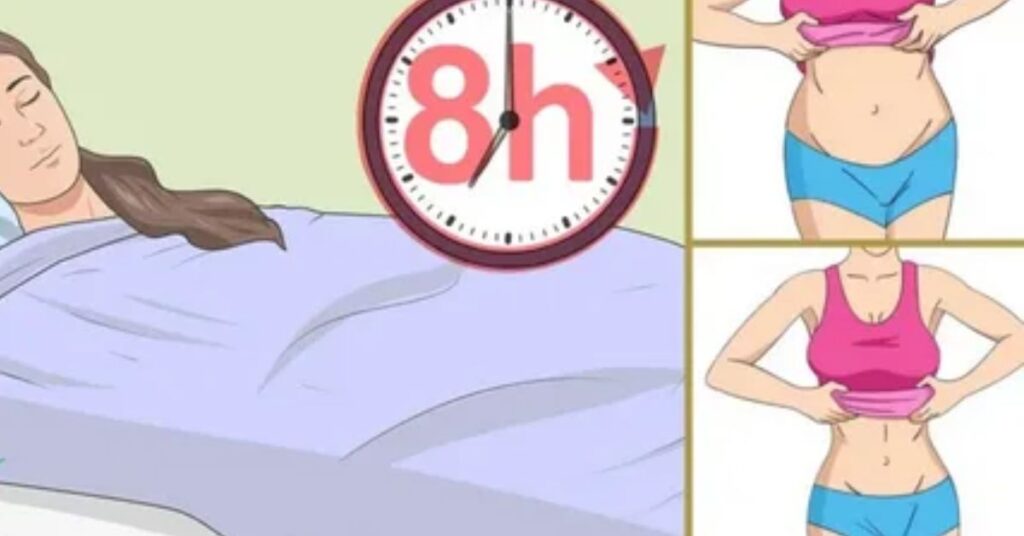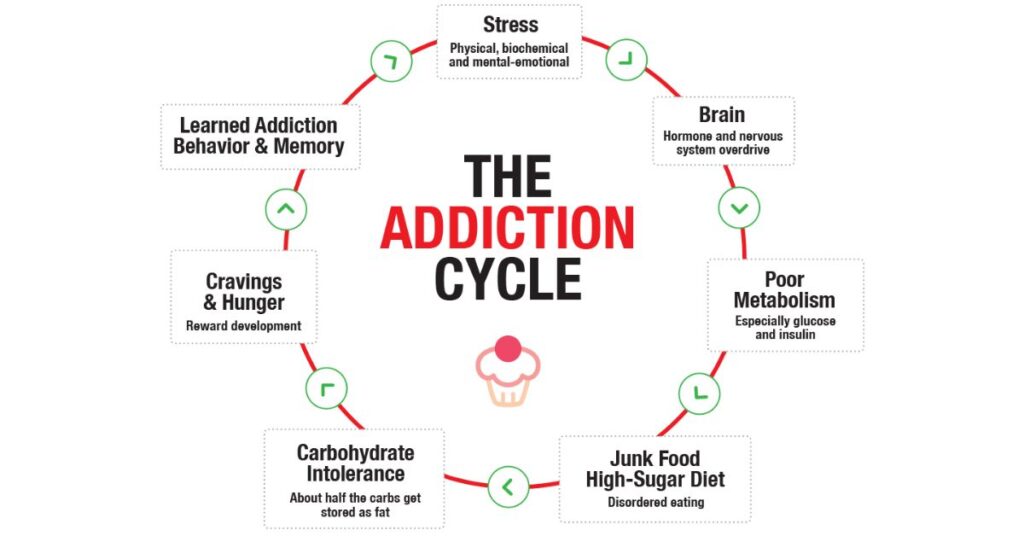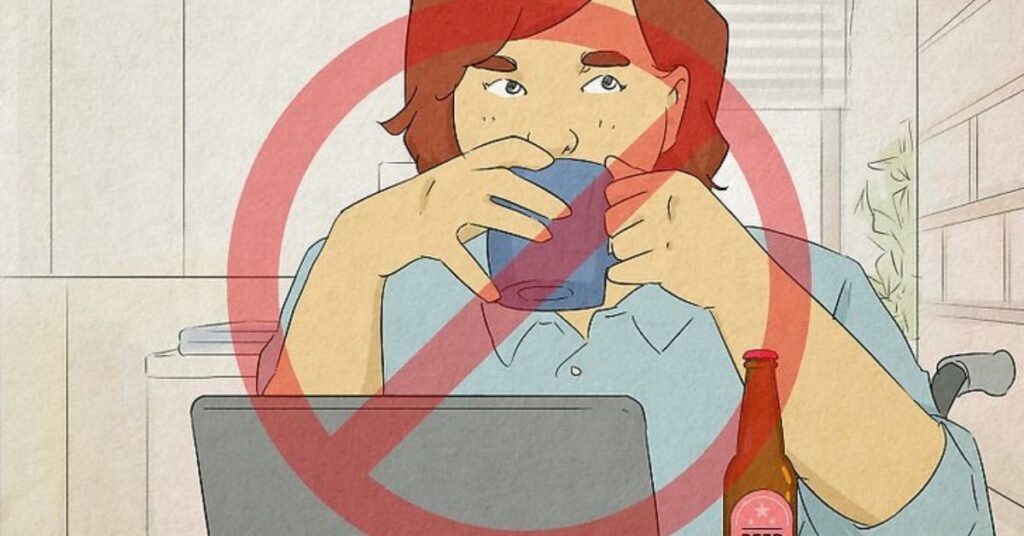Sleep is more than just a time to rest; it is essential for overall health. When you sleep, your body repairs itself, strengthens the immune system, and balances important hormones. Without enough sleep, you may feel tired, have trouble focusing, and even experience mood swings. Many people underestimate the importance of sleep, but it plays a key role in maintaining a healthy body and mind.
Did you know that lack of sleep can make it harder to lose weight? When you don’t get enough rest, your body produces more of the hormone ghrelin, which increases hunger, and less leptin, which helps control appetite. This imbalance makes you crave unhealthy foods and eat more than you need. At the same time, poor sleep slows down metabolism, making it easier to gain weight. If you are struggling with weight loss, improving your sleep habits could be the missing piece of the puzzle.
Getting enough quality sleep can help you stay healthier, feel more energized, and manage your weight more effectively. Try setting a regular bedtime, avoiding screens before sleep, and creating a relaxing nighttime routine. Even small changes can make a big difference. Prioritizing rest is one of the simplest and most effective ways to improve your overall well-being.
You may also like this: electric-bike-the-future-of-eco-friendly-and-smart-transportation/
The Science Behind Sleep & Health
Sleep is like a reset button for your body. While you rest, your body repairs muscles, strengthens the immune system, and balances important hormones. Your brain also processes memories and emotions, helping you stay sharp and focused during the day. Without enough sleep, you may feel tired, stressed, and more likely to get sick.
Good sleep also keeps your heart and metabolism healthy. It helps control blood sugar levels, reduces inflammation, and supports a strong heart. Poor sleep, on the other hand, can lead to high blood pressure, weight gain, and a weaker immune system. This is why quality rest is just as important as eating well and exercising.
The Surprising Connection Between Sleep & Weight

Sleep and weight are more connected than you might think. Poor sleep can make you feel hungrier, slow down your metabolism, and lead to weight gain. Let’s break it down:
Can Lack of Sleep Increase Appetite?
- When you don’t sleep enough, your body produces more ghrelin (the hunger hormone) and less leptin (the hormone that tells you you’re full).
- This imbalance makes you crave junk food, sugary snacks, and high-fat meals.
- Sleep-deprived people tend to eat more calories than they actually need.
Does Sleep Increase Metabolism?
- Quality sleep helps your body burn calories more efficiently, even when resting.
- Poor sleep slows metabolism, making it harder to lose weight.
- When you don’t sleep well, your body stores more fat, especially around the belly.
Sleep & Weight Connection at a Glance
| Factor | Good Sleep | Poor Sleep |
| Hunger Hormones | Balanced (less hunger) | Imbalanced (more cravings) |
| Food Choices | Healthy & controlled | Sugary & high-fat cravings |
| Metabolism | Fast & efficient | Slow & sluggish |
| Fat Storage | Less fat stored | More fat stored |
To maintain a healthy weight, focus on getting 7–9 hours of quality sleep every night. Good rest is just as important as eating well and exercising!
Sleep & Lifestyle: Breaking the Cycle of Poor Rest

Sleep and daily life are closely connected. Poor sleep can affect your mood, energy, and overall health. At the same time, stress, bad habits, and an unhealthy routine can make it harder to sleep well. This creates a cycle where stress leads to poor sleep, and poor sleep increases stress. Breaking this cycle is important for both physical and mental well-being.
By managing stress and improving sleep habits, you can feel more energized, focused, and healthy. Simple lifestyle changes, like following a bedtime routine and reducing screen time, can help you sleep better and reduce stress. Prioritizing rest is key to living a balanced and healthier life.
How Stress and Poor Sleep Create a Vicious Cycle
Stress Makes It Hard to Sleep
- Your mind stays active, making it difficult to relax.
- Worries and anxiety keep you tossing and turning.
- Racing thoughts prevent deep, restful sleep.
Poor Sleep Increases Stress
- Lack of sleep raises cortisol (the stress hormone).
- You wake up feeling tired, irritated, and unfocused.
- Everyday challenges feel even more overwhelming.
The Long-Term Effects
- Weakens the immune system, making you prone to illness.
- Slows metabolism, leading to weight gain.
- Increases risk of anxiety, depression, and burnout.
How to Break the Cycle
- Practice deep breathing or meditation before bed.
- Follow a consistent sleep schedule every night.
- Limit screen time and avoid caffeine in the evening.
- Create a relaxing bedtime routine to calm your mind.
Better sleep = Less stress = A healthier, happier you!
Simple Habits for Better Sleep & a Healthier You
Good sleep doesn’t just happen—it’s built through small, daily habits. Follow these simple tips to improve your sleep and overall well-being.
| Habit | Why It Helps | How to Do It |
| Stick to a Sleep Schedule | Trains your body to sleep better | Sleep and wake up at the same time every day, even on weekends |
| Limit Screen Time Before Bed | Reduces blue light that disrupts sleep hormones | Turn off phones, TVs, and computers 30-60 minutes before bedtime |
| Avoid Caffeine & Heavy Meals at Night | Prevents sleep disturbances and restlessness | Skip coffee, tea, and heavy meals 4-6 hours before bed |
| Relax Before Bed | Helps your brain slow down for sleep | Try reading, meditating, or taking a warm bath |
| Exercise Regularly | Boosts sleep quality and reduces stress | Aim for 30 minutes of movement daily, but avoid late-night workouts |
| Create a Cozy Sleep Environment | Makes falling asleep easier | Keep your room cool, dark, and quiet with comfy bedding |
| Get Morning Sunlight | Regulates your body’s natural sleep-wake cycle | Spend 10-20 minutes outside in natural light every morning |
Avoiding Caffeine, Screens, and Heavy Meals Before Bed

What you do before bedtime affects how well you sleep. Three common habits—drinking caffeine, using screens, and eating heavy meals late at night—can disrupt your rest and leave you feeling tired the next day. Avoiding these can help you fall asleep faster and enjoy deeper sleep.
| What to Avoid | Why It Disrupts Sleep | Better Alternatives |
| Caffeine (Coffee, Tea, Energy Drinks, Soda) | Stimulates the brain and keeps you alert for hours | Drink herbal tea or warm milk in the evening |
| Screens (Phones, TVs, Laptops, Tablets) | Blue light reduces melatonin (the sleep hormone), making it harder to sleep | Read a physical book or listen to calming music |
| Heavy Meals (Greasy, Spicy, or Sugary Foods) | Can cause bloating, heartburn, and discomfort while sleeping | Eat a light snack like yogurt, nuts, or a banana |
Tip: Try avoiding caffeine after 2 PM, limit screen time 30-60 minutes before bed, and finish eating at least 2-3 hours before sleep. These small changes can lead to better sleep and a healthier body!
Conclusion
Sleep is one of the most powerful tools for a healthier body and mind. It affects everything from energy levels and mood to weight management and overall well-being. Poor sleep can lead to stress, overeating, and health problems, while quality rest helps your body recover, boosts metabolism, and improves focus.
By following simple habits—like maintaining a sleep schedule, avoiding screens and heavy meals before bed, and creating a relaxing bedtime routine—you can improve your sleep and feel your best. Prioritizing rest isn’t just about sleeping more; it’s about sleeping better. Start making small changes today, and your body will thank you with better health, more energy, and a happier life!
FAQs
How does rest and sleep affect the body?
Rest and sleep help the body recover, repair muscles, boost the immune system, and balance hormones. They also improve brain function, mood, and energy levels.
How does sleep affect your weight?
Sleep controls hunger hormones, metabolism, and fat storage. Poor sleep increases cravings and slows metabolism, leading to weight gain, while good sleep helps with weight management.
What is the power of sleep?
Sleep restores the body, strengthens the mind, and improves overall health. It enhances memory, boosts immunity, regulates emotions, and keeps the body functioning properly.
Why is sleep and rest important for health?
They help prevent diseases, reduce stress, improve focus, and keep the heart, brain, and metabolism healthy. Without proper rest, the body becomes weak and prone to illnesses.
How does sleep affect your health?
Good sleep supports heart health, brain function, digestion, and immunity. Poor sleep increases the risk of obesity, diabetes, high blood pressure, and mental health issues.
What is the concept of sleep and rest?
Sleep is a natural state where the body recovers and recharges, while rest includes relaxing activities that help the body and mind recover, even when awake. Both are essential for well-being.







